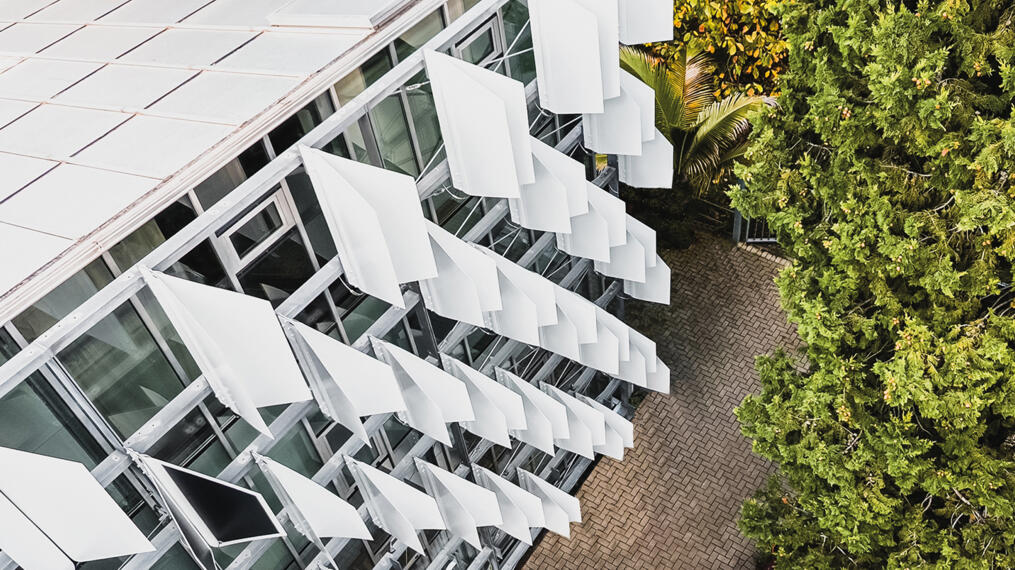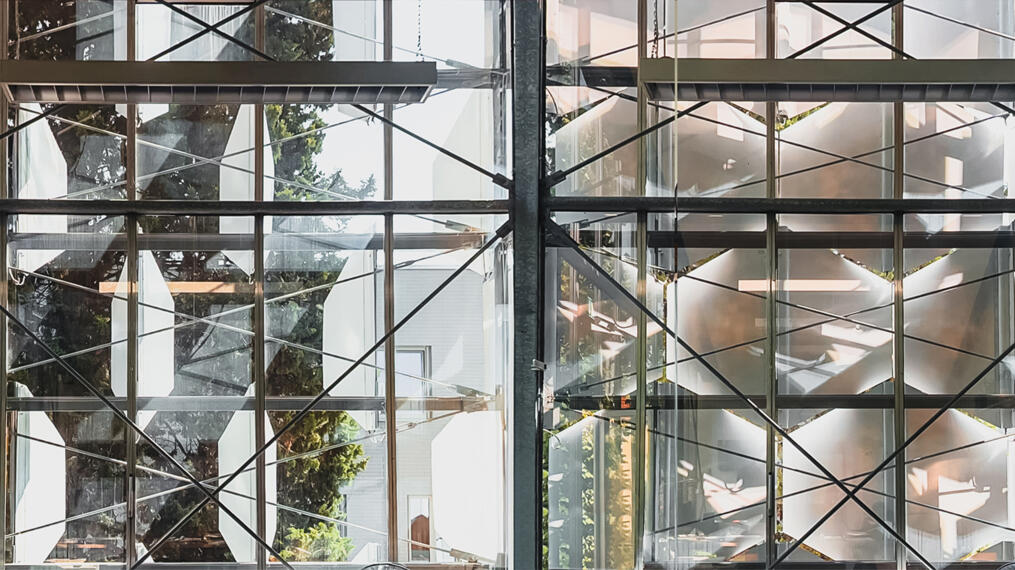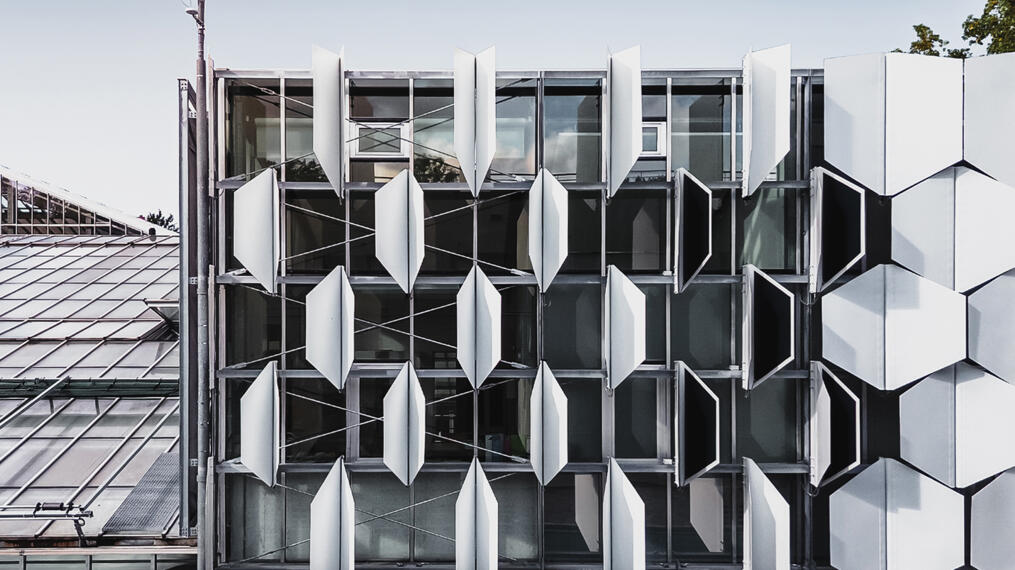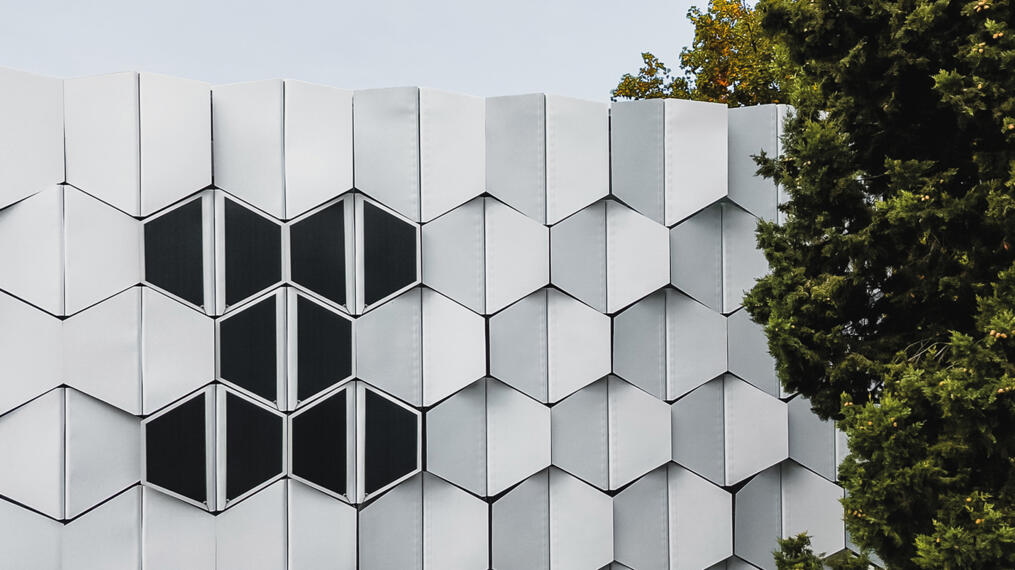With the smart façade system FlectoLine, Hella is able to score a considerable success in the area of research and development. The intelligent, highly automated solution is modelled on nature and optimally coordinates central aspects of sustainable construction. The company provided tests in relation to building physics, technical components, extensive know-how about material and systems and was responsible for the system control.
Experts at the HELLA InnovationLAB department have worked with a 3D model, the digital twin of a building, for over 2 years, simulating the conditions of heat and light as well as the solar energy generated from the photovoltaic elements. The obtained data were used as the basis for a test installation on the façade of a building in the botanical gardens at the University of Freiburg.
Moreover, HELLA installed sun protection sensors inside the building, developed by the in-house control technology department. The sensors of the ONYX.TAG series provide daily updated figures from the interior, which the research team combined with real-time data from the weather forecasts in order to further optimize the automated control unit of the outdoor installation. The goals were to achieve ideal interior illumination with reliable glare protection, energy-saving heat regulation and as much production of solar energy as possible.




Other than with the smart control unit, the innovative façade system also scores with its elaborated material mix and its revolutionary functionality. The research team took the wings of an insect and the movement of a leaf on a water plant as an example. From this, they developed shading elements that, with their flowing movements, look like butterfly wings and, with a closing mechanism, are reminiscent of carnivorous plants. The elements align themselves optimally and flexible according to the position of the sun and simultaneously shade the glass façade.
As technology partner, HELLA repeatedly plays a leading role in the development of new and seminal systems and materials. The company has therefore employed its own experts in its InnovationLAB in order to expand its know-how in a variety of subject areas, including smart building technologies, meteorology, mechatronics, mathematics and physics. Currently, the HELLA InnovationLAB supervises seven research projects, where it plays an active role in shaping the future of the industry. An important focal point for most of the projects simultaneously represents one of HELLA’s main company values: sustainability.
After having finished this project phase successfully, the University of Stuttgart and HELLA as their technology partner are already planning further tests in order to verify the commercialisation of the smart façade system. “We are confident that with FlectoLine we will be able to take even more steps towards a sustainable future and are already looking forward to the development of this promising project”, Managing Director Andreas Kraler says.